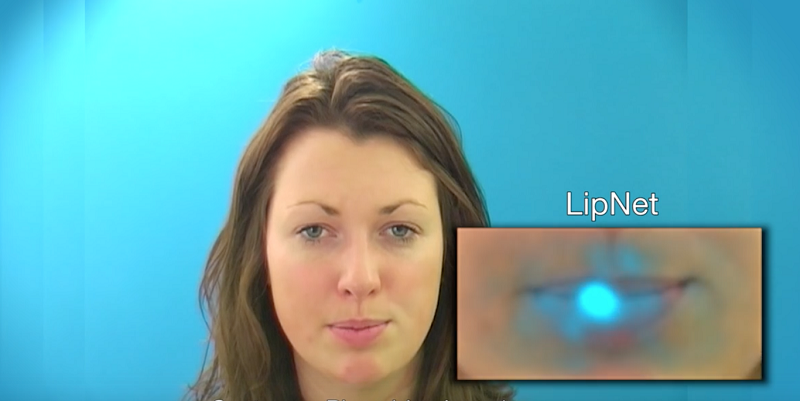Lipread is not a simple task, who say pursue it professionally guarantee results ranging from 20% to 60%, a very large variation as there are many factors involved in the reading is appropriate and serve To determine with certainty what was said.
This could end up in a not too distant future when systems based on artificial intelligence can perform this task automatically, where the deep learning plays a key role in being able to manage a lot of data and ‘learn’ with the passage of weather. Now a project developed by the University of Oxford brings us to that reality.

93.4% accuracy, but under certain conditions
A group of researchers from the Department of Artificial Intelligence at the University of Oxford have shown the first tests of a system that can read lips, system that have worked in recent years and now seems to give the first fruits with encouraging results.
It is a programmed based on deep learning, which even has funding from Alphabet (Google), known as LipNet, which has overcome professionals in this discipline having obtained 93.4% accuracy in testing , While humans only matched in 52.3% of cases. This might sound amazing if it were not because they are tests that contain certain patterns that have made, that in this case the machine, have better results.
You may also like to read another article on iMindSoft: How Apple Products Enhance Teaching and Learning
The system was trained under a set of research data known as GRID, which contain thousands of short videos with meaningless phrases, which contain the same pattern: command, color, preposition, letter, number 1 to 10 and an adverb. Within this pattern the words are limited, so some researchers mention that the results of these tests are exaggerated and do not stick to reality.
Project leaders confirmed that they are working only with certain vocabulary and grammar, but say that this causes the system to grow and so can detect faults more easily, so they can feed the database with more information over time.
Contrary to what many might think, this system is not intended for surveillance or espionage tasks, because according to its creators so the program has a clear reading needs to see the subject’s language, in addition to good lighting that highlights the lips of the rest Of the face. The first applications for this system are geared toward helping people with hearing disabilities, and even dream of applications within smart glasses that help transcribe the words of another person in noisy environments and dictation functions silent personal assistants either on the mobile phone or inside the computer.